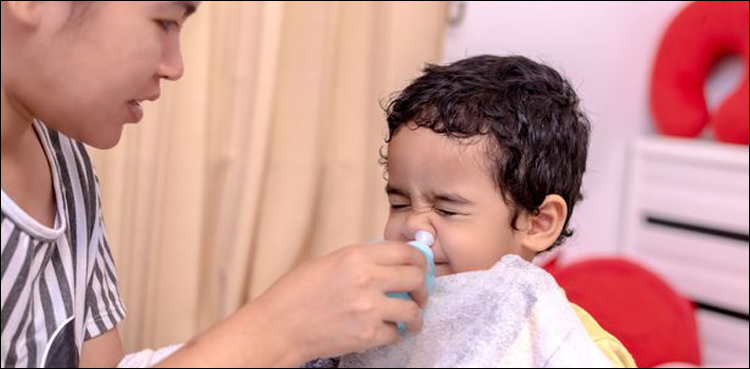
MELBOURNE: For children under age 12, decongestants might ease the common cold symptoms of a blocked or running nose, but these medications may not be safe for this age group, according to a research review.
For adults, there’s little evidence that decongestants help with congestion, one of the most bothersome cold symptoms. For kids, there is no clear evidence they work at all, but plenty of research showing mild or potentially dangerous side effects, the study team writes in The BMJ.
“The common cold is very common and affects everyone all over the world,” said lead author Dr. Mieke van Driel of the University of Queensland in Brisbane, Australia.
The common cold is caused by a virus and tends to run its course in 7 to 10 days, the authors write. Typically, children have about six to eight colds per year, and adults have two to four.
To see what symptoms patients find most bothersome, van Driel and colleagues asked 10 customers seeking over-the-counter treatments at a community pharmacy in Belgium what concerned them the most.
“Evidence about health is only relevant if it addresses things that matter to patients,” van Driel said by email. “We wanted to make sure our evidence summary was useful to them and asked them to guide us.”
The customers heavily emphasized nasal symptoms, so the research team decided to focus their research review on treatments for congestion, a runny nose and sneezing.
The researchers looked at studies assessing the effects of decongestants, antihistamines, analgesics, intranasal corticosteroids, herbal remedies, vitamins and minerals such as zinc, as well as saline nasal rinses, vapor rub and inhaled steam.
Overall, they found little evidence to support the idea that any over-the-counter cold treatments help nasal symptoms significantly, and the drugs tend to have side effects such as insomnia, drowsiness, headache, and stomachache.
They also found few trials in children under age 12. One study found low evidence that saline irrigations or drops could be safe for young children. A few small studies reported contradictory results for the effectiveness of decongestants and antihistamines in kids.
In one review, which covered four randomized controlled trials with a total of 1,466 adult participants, sedating antihistamines helped with runny nose and sneezing symptoms but not nasal congestion. With non-sedating antihistamines, however, none of the symptoms seemed to improve.
Antibiotics and intranasal corticosteroids were not shown to improve symptoms either.
When it comes to more “natural” remedies, the researchers found that clinical trials investigating Echinacea, vitamin C, zinc lozenges, and heated humidified steam did not even address nasal symptoms. One review concluded that saline irrigations were not likely to be effective. Zinc was shown to reduce the overall duration but not the severity of cold symptoms.
“Vitamin C is usually perceived as an effective, harmless and inexpensive therapeutic alternative,” said Angela Ortigoza of Pontifical Catholic University in Santiago, Chile, who wasn’t involved in the current study.
Although vitamin C does help the immune system, taking it to prevent a common cold usually won’t work, they said.
“It might be difficult to make patients desist from such deep-rooted preconceived ideas, even considering the certainty of this evidence, so variability in decision-making is to be expected,” she said.
The study team didn’t find any studies of probiotics, garlic, Chinese medicinal herbs, vapor rub, eucalyptus oil, honey, ginseng or increased fluid intake for nasal cold symptoms.
The post Don’t give decongestants to children for colds, say experts appeared first on ARYNEWS.
from ARYNEWS https://ift.tt/2Po1G86
via IFTTT



No comments:
Post a Comment